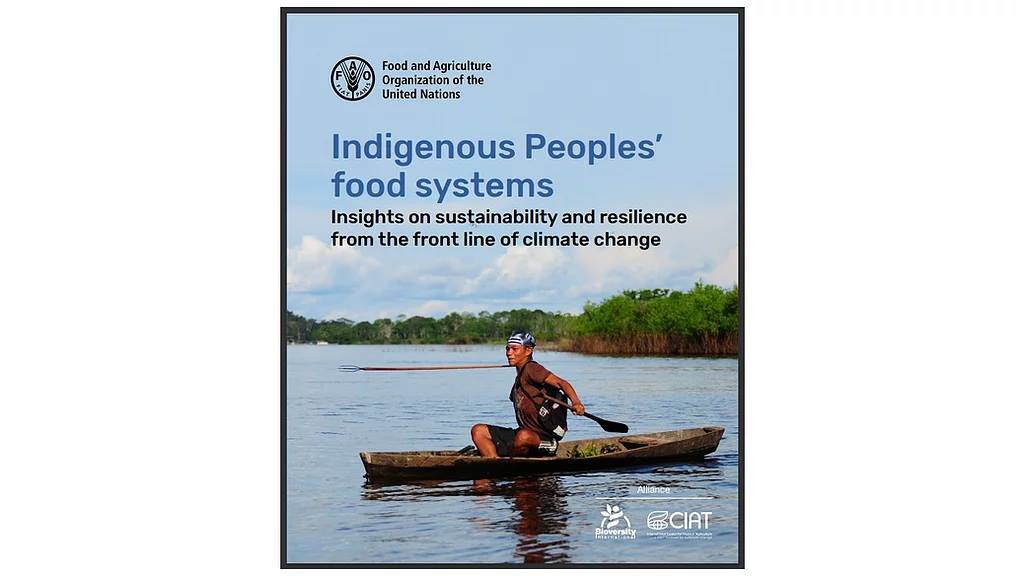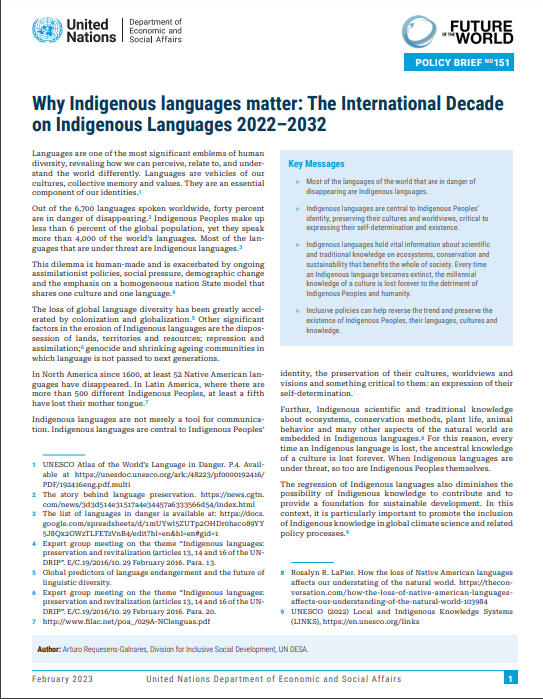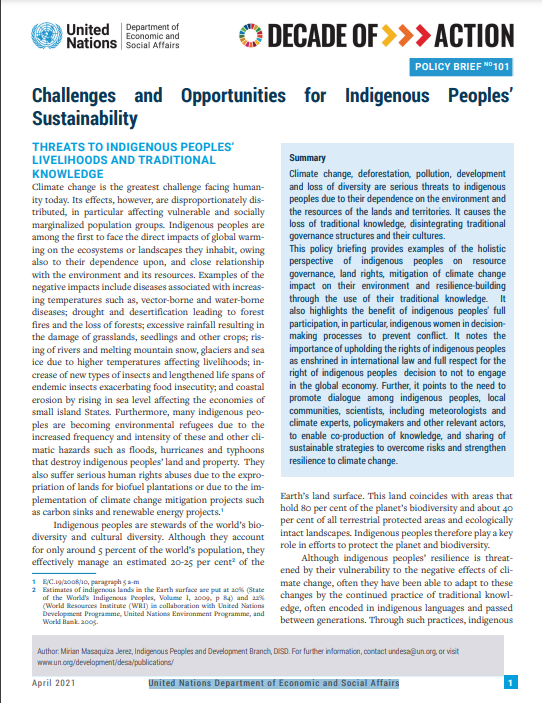Knowledge Hub
The Right to Food and Indigenous Peoples
2008
Author(s): Food and Agriculture Organization of the United Nations (FAO)
The right to food entitles every person to an economic, political, and social environment that will allow them to achieve food security in dignity through their own means.The right to food is an important tool for indigenous peoples to bring about real change in their lives and to negotiate power structures.
Enhancing Participation and Representation of Indigenous Peoples in Parliament
2014
Author(s): United Nations Development Programme
This brief discussed the importance of Indigenous peoples’ perspective and their full and effective participation in policy and decision-making to be seen as instrumental in breaking the cycle of discrimination and exclusion.

International Indigenous Policy Journal
2010
Publisher/Organisation: Western University, Indigenous and Northern Affairs Canada, Social Sciences and Humanities Research Council of Canada
IIPJ is a peer-reviewed, policy-relevant research journal addressing issues pertaining to Indigenous Peoples throughout the world.

Indigenous Peoples’ Food Systems : Insights on Sustainability and Resilience from the Front Line of Climate Change
2021
Author(s): Food and Agriculture Organization of the United Nations
This book makes valuable contribution to global food system debates, including, but not limited to, the ability to generate food without depleting the natural resource base but rather preserving and enhancing the biodiversity and health of the ecosystems, the use of renewable energy sourced from within the food system, the importance of customary governance mechanisms and institutions, and the role that traditional knowledge plays in climate resilience
The Impacts of Land Dispossession on Indigenous Women
2015
Author(s): Asia Indigenous Peoples Pact (AIPP)
This briefing paper highlights the specific conditions of indigenous women, who comprise a major segment of indigenous communities where development projects are being implemented in India, Indonesia and Cambodia.
Intellectual Property and Traditional Medical Knowledge
2016
Author(s): World Intellectual Property Organization (WIPO)
This brief focuses on IP protection of traditional medical knowledge and does not deal specifically with associated genetic resources.
The WIPO Inter-governmental Committee on Intellectual Property and Genetic Resources, Traditional Knowledge and Folklore
2016
Author(s): World Intellectual Property Organization (WIPO)
Work on the relationship between IP, traditional knowledge (TK) and genetic resources (GRs) is more recent, and stems from concerns regarding the role that IP protection should play in achieving global policy objectives as varied as the conservation of biodiversity (as enshrined in the Convention on Biological Diversity, 1992), food security, free and fair trade, climate change and sustainable development.
.png)
First Peoples Child & Family Review
2003
Publisher/Organisation: First Nations Child and Family Caring Society of Canada
This is a peer-reviewed, open-access, scholarly online journal that shares multi-disciplinary indigenous knowledge and research experience amongst indigenous health professionals, leaders, researchers and community members.

Why Indigenous languages matter: The International Decade on Indigenous Languages 2022–2032
2023
Publisher/Organisation: United Nations Department of Economic and Social Affairs
The loss of global language diversity has been greatly accelerated by colonization and globalization. Other significant factors in the erosion of Indigenous languages are the dispossession of lands, territories and resources; repression and assimilation; genocide and shrinking ageing communities in which language is not passed to next generations.

Challenges And Opportunities For Indigenous Peoples’ Sustainability
2021
Publisher/Organisation: United Nations Department of Economic and Social Affairs
Although indigenous peoples’ resilience is threatened by their vulnerability to the negative effects of climate change, often they have been able to adapt to these changes by the continued practice of traditional knowledge, often encoded in indigenous languages and passed between generations.



